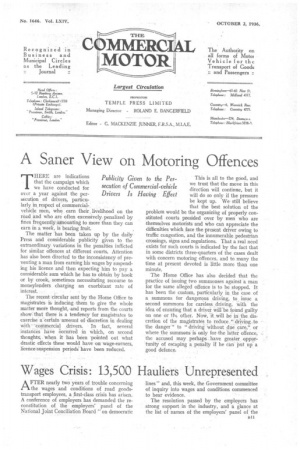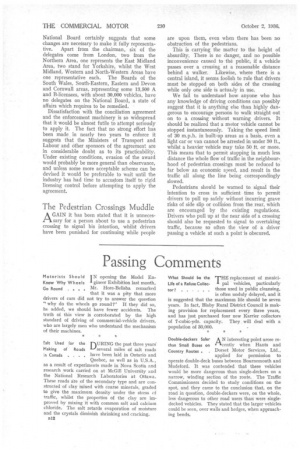Wages Crisis: 13,500 Hauliers Unrepresented
Page 21

Page 22

If you've noticed an error in this article please click here to report it so we can fix it.
AFTER nearly two years of trouble concerning the wages and conditions of road goodstransport employees, a first-class crisis has arisen. A conference of employers has demanded the reconstitution of the employers' panel of the National Joint Conciliation Board "on democratic lines" and, this week, the Government committee of inquiry into wages and conditions commenced to hear evidence.
The resolution passed by the employers has strong support in the industry, and a glance at the list of names of the employers' panel of the National Board certainly suggests that some changes are necessary to make it fully representa tive. Apart from the chairman, six of the delegates come from London, two from the Northern Area, one represents the East Midland Area, two stand for Yorkshire, whilst the West Midland, Western and North-Western Areas have one representative each. The Boards of the South Wales, South-Eastern, Eastern and Devon and Cornwall areas, representing some 13,500 A and B-licensees, with about 30,000 vehicles, have no delegates on the National Board, a state of affairs which requires to be remedied.
Dissatisfaction with the conciliation agreement and the enforcement machinery is so widespread that it would be almost futile to attempt seriously to apply it. The fact that no strong effort has been made in nearly two years to enforce it suggests that the Ministers of Transport and Labour and other sponsors of the agreement are in considerable doubt as to its practicability. Under existing conditions, evasion of the award would probably be more general than observance, and unless some more acceptable scheme can be devised it would be preferable to wait until the industry has had time to accustom itself to rigid licensing control before attempting to apply the agreement.




















































































